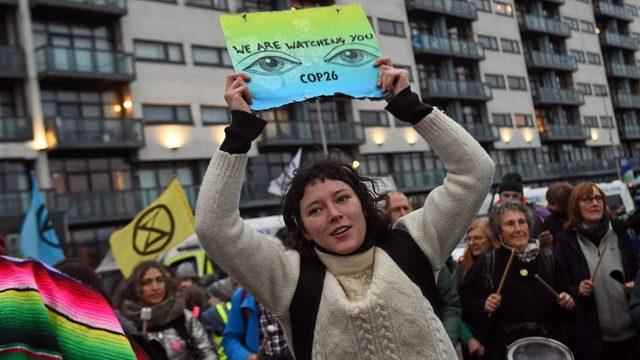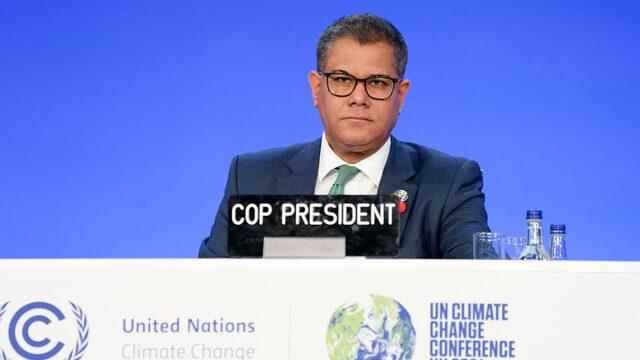Alok Sharma, who chaired the 26th United Nations Climate Change Conference (COP26), held last year, made an assessment 6 months later. Sharma said world leaders are not meeting their climate goals.
At the summit, which brought together world leaders in Glasgow, Scotland, an agreement was signed that included a series of measures to be taken against the climate crisis.
Key decisions were reached in the agreement, such as a commitment to phase out coal, a regular review of emission reduction plans, and more financial support to developing countries.
However, evaluating the progress of the countries after the summit, Sharma said that the work “should urgently accelerate”, otherwise “humanity will harm itself terribly”.
Sharma said, “World leaders are not meeting the climate targets set in Glasgow and this needs to change as soon as possible. We need every country to accelerate as soon as possible” and continued his words as follows:
“Time is running out to avert the climate crisis, and the consequences are already catastrophic. All world leaders need to prove that their promises are not empty and keep them.”
Expressing that the climate crisis fell from the headlines with Russia’s invasion of Ukraine, Sharma said that “more decisive action should be taken to implement what was agreed in Glasgow”.
On the other hand, Scottish Autonomous Administration Prime Minister Nicola Sturgeon is expected to make a speech during her visit to the USA in the following hours, saying that failure to fulfill the COP26 commitments will have “catastrophic” consequences for the planet.
What happened at the COP26 summit?
The COP26 summit held in Glasgow was held with the aim of limiting global warming to 1.5C and bringing world leaders together on this issue.
However, scientists state that the probability of warming to remain at this level is between 6-10 percent, and even if all the agreements reached are fulfilled, it is estimated that the temperature will approach 2 degrees.
According to the latest report of the UN Intergovernmental Panel on Climate Change (IPCC), the world may warm by 3.2C this century if the agreements reached in Glasgow are not fulfilled.
Scientists stress that this will lead to “unprecedented heatwaves, storms and severe water shortages.”
Experts state that to prevent this, carbon emissions must reach their peak by 2025 at the latest.
Speaking to the BBC, Alok Sharma underlines the need to be hopeful and take urgent action to prevent the climate crisis at this point.
In his speech, Sturgeon is expected to emphasize the importance of transitioning to clean energy sources and touch on issues such as protecting the most vulnerable countries and people.

BBC Climate Correspondent Justin Rowlatt says that food, energy and economic crises are increasing in the world.
Stating that the people in Sri Lanka and Peru are rioting because of the rising oil, fertilizer and food prices, Rowlatt points out that there are concerns that similar protests will occur in 35 more countries.
Rowlatt states that these crises, which are described as more urgent, are given priority and that many countries, including England, have started new oil and natural gas initiatives.
